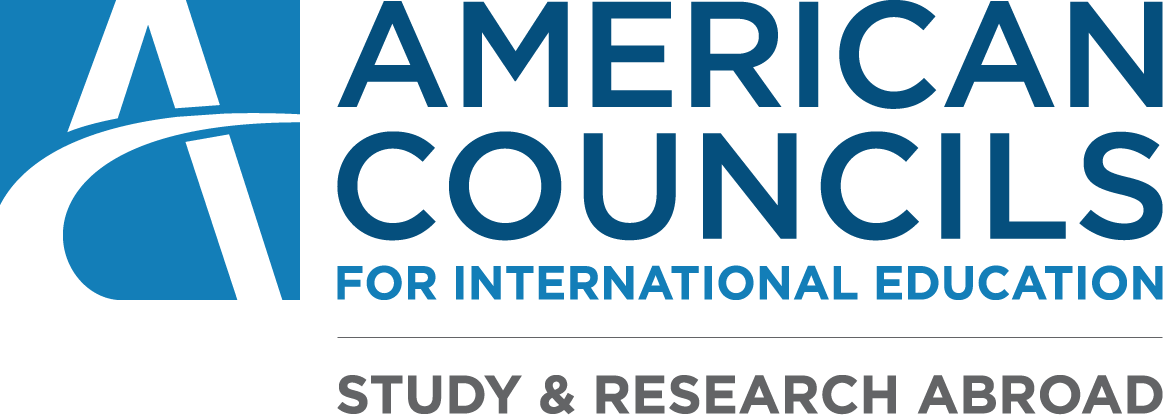Fulbright-Hays Scholarship Recipient Profile: Patrick Fox
Note: The Spring 2020 semester was interrupted by the global COVID-19 pandemic. Participants returned home in the middle of the semester and continued their studies remotely. Patrick Fox reflects on his experience while on the Eurasian Regional Language Program in Dushanbe, Tajikistan as a Fulbright-Hays Group Projects Abroad scholarship recipient. This story was originally shared on August 13, 2020.
I spent this past semester studying abroad in Dushanbe, Tajikistan thru the American Councils Eurasian Regional Language Program. I chose to go to Tajikistan because it was my best option to advance my studies of Persian. I had already spent three semesters studying Persian at the University of Illinois at Urbana-Champaign; however, I understood to achieve strongest grasp of the language would require a study abroad.
Arriving in Tajikistan last January was intimidating, the culture and surroundings are vastly different from Illinois. That and the combination of Dushanbe having three languages commonly spoken made the months ahead seem daunting. My worries were quickly put to rest when I met my host family and the American Councils staff. In my host family’s home, I was given my own private bedroom and bathroom. I dined with the family for breakfast and dinner and from the moment I arrived until the day I left the family was always kind and welcoming.
I was extremely impressed with the American Councils staff, especially, my program director. On the first day, she explained how the program worked and what my life in Dushanbe would be like. During my time there, she always checked in to make sure things were going okay with my classes and with my host family. The Eurasian Regional Language Program had two other American Councils students, whom had been studying in Dushanbe since August. They gave able to give me great advice on the classes, the program, and overall life in Dushanbe.
I had four classes each with a different teacher. My classes were on grammar, conversation, reading, and Tajik, the native language. I was pleasantly surprised to find my instruction would be one on one. This allowed me to go at my own pace, taking time to understand the materials, rather than trying to keep pace with other students.
Each American Councils teacher took an interest in how I wanted to learn. My grammar teacher would always spend the first half of the class speaking with me about a topic of my choosing, we discussed everything from sports or politics. I found this to be a natural way to learn new words and phrases. My conversation teacher understood that I am also a visual learner so when we were having discussions in class, we would use the white board to help me visualize the subject, whether it was the layout of a house and its furniture or places around Dushanbe and how to get there. This personalized style of teaching was something that I responded to and found to be immensely helpful. Another important aspect of the program was the immersion. The immersion did prove to be difficult at times due to the fact that many in Tajikistan spoke Russian or Tajik and not Farsi. However, no matter what language they spoke, I found that people in Tajikistan were warm and welcoming.
I had two favorite restaurants that I visited on a regular basis. Banu, an Iranian restaurant, and a café called Chatr. In addition to incredible spaghetti bolognese, Chatr has a noble cause of supporting women that escaped slavery and domestic violence. There was also a biweekly pub quiz held by group of expats that live in Tajikistan. This gathering drew not only the expats but other students studying in Tajikistan. In my two short months there, I met students from England, Scotland and Switzerland. Although studying Farsi and immersion was my focus, this get-together was a nice break.
I had been looking forward to the Navruz holiday and taking a trip to the countryside with my classmates, but unfortunately coronavirus cut my time in Tajikistan short. I returned to the U.S. in mid-March and was grateful that the American Councils staff in Washington and Dushanbe were able to arrange for me to complete my classes and semester via Skype.
Overall, I had an amazing experience in Tajikistan. The modern world is becoming more and more interconnected and learning and understanding more than one language is becoming vital. And the best way to learn another language is to go and immerse yourself in the culture. My study abroad experience has definitely reaffirmed my desire to work as a diplomat and to strive to bring people together.
About Fulbright-Hays Scholarships from American Councils
American Councils for International Education has received a grant from the U.S. Department of Education, Fulbright-Hays Group Projects Abroad, to provide scholarships for advanced overseas Russian and Persian language study. Learn more about the eligibility requirements here.
About Fulbright-Hays Group Projects Abroad
The Mutual Educational and Cultural Exchange Act, commonly referred to as the Fulbright-Hays Act, was made law by the 87th U.S. Congress under President John F. Kennedy on September 21, 1961. Senator J. William Fulbright and Representative Wayne Hays introduced the legislation, which represents the basic charter for U.S. government-sponsored educational and cultural exchange. 2016 marks the 55th anniversary of this landmark legislation. More information about Fulbright-Hays Group Projects Abroad can be found here.
By: Patrick Fox
Program: Eurasian Regional Language Program
Term: Spring 2020


